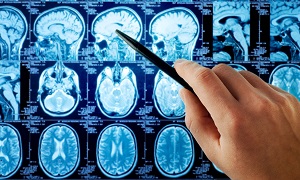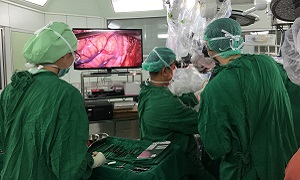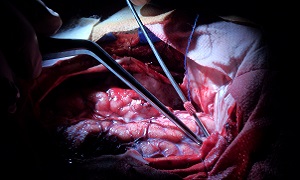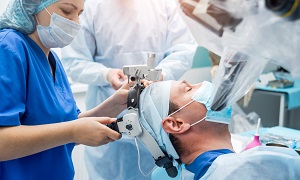Best Doctors in India for Brain Trauma Surgery
Best Brain Trauma Surgery Hospitals in India
- City: Bengaluru, India
Hospital Highlights:
- Fortis Hospital Bannerghatta, Bengaluru was established in 2006.
- The hospital is a 276 bedded multi-specialty tertiary care facility.
- The hospital specializes in cutting-edge medical technology and dedicated patient care services.
- The hospital is equipped with state-of-the-art technologies like trans-radial angioplasty, trans-abdominal cardiac surgery, and computerized TKR navigation surgery.
- The hospital provides specialty medical services in cardiology, cardiac surgery, orthopedics, neurology, neuro-surgery, GI, and Minimal Access Surgery (MAS).
- City: Chennai, India
Hospital Highlights:
- Fortis Malar was established in 1992 and was formerly known as Malar Hospital.
- The hospital specializes in cutting-edge medical technology and dedicated patient care services.
- The hospital is multi-specialty, tertiary care facility with 180 beds.
- The hospital offers comprehensive medical care in specialties such as cardiology, cardio-thoracic surgery, neurology, neurosurgery, orthopedics, nephrology, gynecology, gastroenterology, urology, pediatrics, and diabetes.
- City: New Delhi, India
Hospital Highlights:
- Established in 1996, Pushpawati Singhania Research Institute is one of the top hospitals in the NCR region, as well as one of the top facilities in India for gastroenterology. The hospital is one of South Asia’s first institutes in medical and surgical treatment for diseases related to digestion.
- The hospital is equipped with state-of-the art facilities coupled with the latest equipment as well as renowned consultants from various parts of India as well as other parts of the world.
- City: New Delhi, India
Hospital Highlights:
- State-of-the-art technology and devoted healthcare professionals have been brought together under one roof at Venkateshwar Hospital to provide genuine medical care. The hospital’s professionals work together as a team to deliver the best possible treatment to their patients, using the most sophisticated equipment and information technology.
- Venkateshwar Hospital’s mission is to attain global excellence in healthcare by employing evidence-based, ethical clinical practices and cutting-edge technology by a team of highly skilled experts.
- City: New Delhi, India
Hospital Highlights:
- Sir Ganga Ram Hospital, New Delhi is known to provide the latest medical procedures with the latest technology in all of its units.
- The hospital has a team of reputed doctors, nurses, and healthcare professionals that ensure that patients receive quality care at affordable costs.
- Staffed with a team of highly qualified doctors, dedicated nurses, and paramedical and non-medical staff, the hospital aims to lead in healthcare delivery, medical education, training, and research.
- As per the vision of the founder, the hospital also provides free treatment to the economically weaker sections of society.
- Sir Ganga Ram Hospital also provides training to young doctors under the Diplomate in National Board(DNB) program. The DNB program at the hospital was started in 1984 and it is known for currently running the maximum number of DNB specialties in the country. It also has the distinction of having the first bone bank in India.
- City: Kerala, India
Hospital Highlights:
- Established in 2019, Apollo Adlux Hospital is the first Apollo Hospital in Kerala and the 73rd hospital owned by Apollo Group in India. With the state’s most advanced, comprehensive healthcare infrastructure and cutting-edge technologies, Apollo Adlux Hospital stands as an example of medical excellence in Kerala.
- With over 34 multi-specialty departments, the hospital believes in providing the best quality treatment to its patients at affordable rates, ensuring comfort at their difficult times.
- The 300-bed hospital is managed by a team of highly qualified and experienced experts who delivers exceptional hospitality to their patients and treats them with great compassion.
- With its affiliation with the Apollo Hospitals Group, the hospital aims in providing patients with top-notch healthcare services while also serving communities in Kerala.
- The hospital has good railway and road connections, and is conveniently close to Cochin International Airport.
- City: Gurugram, India
Hospital Highlights:
- Situated near DLF Cyber City, Gurugram, Narayana Superspecialty Hospital is one of the top medical facilities in the Delhi NCR region, catering to the needs of the people. Known for its commitment to quality medical care and patient service, the hospital is a state-of-the-art facility with planned and well-equipped sections, which includes a spacious OPD area as well as comfortable patient rooms.
- It is the closest super-specialty hospital from Indira Gandhi International Airport towards Gurugram, and also the nearest super specialty hospital from DLF Cyber City. It is also close to major residential areas in Gurugram.
- It is part of the renowned Narayana Health Group. Established in 2000, by Dr. Devi Shetty, a renowned cardiac surgeon, it has grown to be one fo India’s leading healthcare groups.
- City: Noida, India
Hospital Highlights:
- Fortis Hospital, Noida, stands as one of the oldest and most trusted healthcare institutions in the region, setting a benchmark for comprehensive medical care.
- As the second mega hub hospital in the Fortis Healthcare Group, Fortis Hospital, Noida, upholds a legacy of trust among more than 1.2 million patients. By integrating top-tier professionals with cutting-edge technology, the hospital delivers superior treatment across various medical disciplines.
- Specializing in advanced Neurosciences, Orthopedics, Kidney and Liver Transplant Programmes, Fortis Hospital, Noida has successfully performed over 1,500 transplants, solidifying its reputation as a leader in specialized medical interventions.
Traumatic Brain Injury
Symptoms
Depending on the type and location of the injury, a person suffering from a traumatic brain injury can show the following symptoms:
- Loss of consciousness
- Feelings of depression
- Seizures
- Confusion and disorientation
- Memory loss / amnesia
- Sleep disturbances
- Dizziness/loss of balance
- Fatigue
- Headaches
- Visual problems
- Poor attention / concentration
- Irritability / emotional disturbances
- Vomiting
If you or your child has received a blow to the head or body, that concerns you or has lead to any behavioral changes, then you should see a doctor immediately. Seek emergency medical care if there are signs or symptoms of traumatic brain injury after a recent blow or another traumatic injury to you or your child’s head.
Causes
Traumatic brain injury is caused due to a blow or other traumatic injury to your head or body. The degree of damage might depend on several factors, which include the nature of the injury as well as the force of impact.
Common events that generally lead to traumatic brain injury can include the following:
Falls- If you fall from your bed, a ladder, in the bath, or down the stairs, it can cause traumatic brain injury. It is the most common cause overall, among older adults as well as young children.
Violence- Gunshot wounds, domestic violence, child abuse, and such assaults are also common causes. A shaken baby syndrome is a traumatic brain injury that can happen to infants if they are shaken violently.
Sports Injuries- Sometimes a traumatic brain injury can also result from sports such as soccer, football, boxing, baseball, skateboarding, hockey, etc. These are common mostly among the youths.
Collisions- Collisions involving cars, motorcycles, bicycles, or pedestrians, can also lead to traumatic brain injury.
Explosive blasts or combat injuries- Among military personnel, explosive blasts are a common cause of traumatic brain injuries. It is still, however, not understood, how the damage occurs, but according to many researchers, the pressure waves passing through the brain can significantly disrupt brain function.
Traumatic brain injury can also be a result of penetrating wounds, severe blows to the head, or falls or bodily collisions with any objects following a blast.
Diagnosis
When a person is brought to the emergency room with a head injury, doctors try to learn as much as they can about the symptoms, as well as the cause and extent of the injury.
A GCS or Glasgow Coma Score is a 15-point test that is used to grade a patient’s level of consciousness. This test helps doctors assess how responsive and conscious a patient is.
Next, diagnostic imaging tests are performed, which can include the following:
Magnetic Resonance Imaging (MRI)
Computed Tomography (CT)
Magnetic Resonance Spectroscopy (MRS)
Treatment
In mild cases of traumatic brain injury, rest and medication might be enough to relieve headaches.
Medications can include anti-seizure drugs or coma-inducing drugs, etc.
However, in severe cases, surgery may be required, to address the following problems:
Repairing skull fractures
Removing clotted blood (hematomas)
Bleeding in the brain
Opening a window in the skull
Surgery can also be used to relieve pressure inside the skull by draining accumulated cerebral spinal fluid or creating a window in the skull that helps to provide more room for swollen tissues.
Most people having a significant brain injury can require rehabilitation. They can relearn basic skills, such as walking or talking. This helps to improve their abilities while performing daily activities.
Complications
Immediately or soon after a traumatic brain injury, there might be several complications. The more severe the injury is, the higher the chances of greater complications.
A person can fall into a coma, where he/she is unaware of anything and unable to respond to any stimulus. A person can also fall into a vegetative state, where a person may open his or her eyes, though he/she is unaware of his/her surroundings. A vegetative state can also become permanent, though generally, individuals progress to a minimally conscious state. In a minimally conscious state, there are signs of self-awareness.
However, when there is no measurable activity in the brain and the brainstem, this is known as brain death. This condition is considered irreversible.
There might be physical complications as well, such as seizures, infection, hydrocephalus, blood vessel damage, headaches, or vertigo. These symptoms may last for a few weeks to a few months, after a traumatic brain injury.
Sometimes, traumatic brain injuries at the base of your skull can cause nerve damage to the nerves that emerge directly from one’s brain, i.e. the cranial nerves. If these nerves are damaged, it can result in:
- Paralysis of facial muscles or loss of sensation in the face
- Loss of or altered sense of taste
- Loss of vision or double vision
- Loss of or altered sense of smell
- Problems while swallowing
- Ringing in the ear
- Dizziness
- Hearing loss
Many people who suffer a significant brain injury can show cognitive problems, such as problems in memory and learning new things. Some people can problems while solving problems or multitasking.
Problems with communication are also common following a traumatic brain injury. Many people also experience changes in behavior and emotion.
According to research, it has also been suggested that repeated or severe traumatic brain injuries can increase the risk of degenerative brain diseases.
A degenerative brain disorder causes gradual loss of the functions of the brain. These disorders include Alzheimer’s disease, Parkinson’s disease, etc.
Prevention
To reduce the risk of brain injury, follow these tips:
Seat belts and helmets- If you are driving or riding in a car, always remember a seatbelt. In case of a bicycle or motorcycle, remember to put on a helmet. Helmets are also important during certain sports such as baseball and snowboarding.
Alcohol and Drug Use- It is important not to drive under the influence of alcohol or drugs. Prescription medications can also impair one’s ability to drive.
To prevent falls around the house, follow the following tips:
- Install handrails in bathrooms
- Put a nonslip mat in the bathtub or shower
- Remove area rugs
- Install handrails on both sides of staircases
- Get regular vision checkups
- Get regular exercise
- Improve lighting in your house
- Keep stairs and floors clear of any clutter
The following tips can help your child avoid any head injuries:
- Install safety gates at the top of the stairways
- Install window guards to prevent falls
- Put a nonslip mat in the bathtub or shower
- Keep stairs clear of any clutter
- Use playgrounds that have shock-absorbing materials on the ground
- Make sure area rugs are secure
- Don’t allow your child to play on fire escapes or balconies













